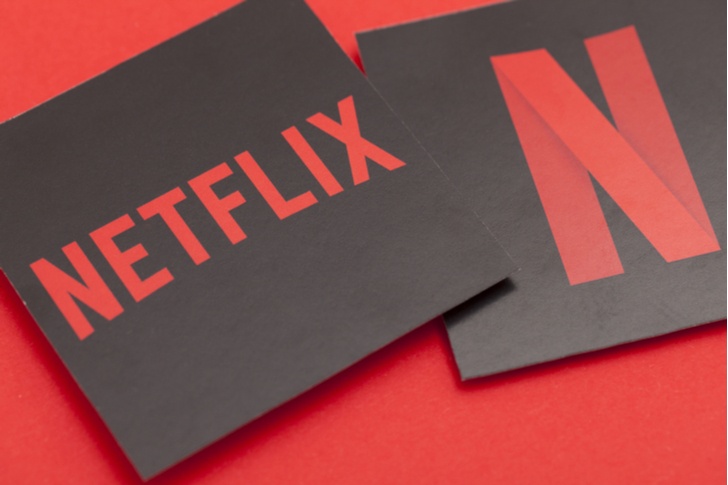Streaming giant Netflix (NASDAQ:NFLX) poses problems for some investors, in part because Netflix stock is starting to look vulnerable.
When interest rates are rising, there are two things investors don’t like. They don’t like big valuations, because higher interest rates tend to pressure big valuations. They also don’t like big debt loads, because higher interest rates lead to dramatically higher interest expenses for heavily indebted companies.
Netflix trades at 130X forward earnings. That is, without argument, a big valuation. Meanwhile, Netflix’s balance sheet is loaded with more than $8 billion in long-term debt. That is a big debt load, especially relative to $1.7 billion in trailing twelve month EBITDA. Moreover, Netflix is reportedly piling on another $2 billion in debt to fund content production and acquisitions.
From this perspective, it is easy to see why Netflix stock is more than 20% off recent highs. The stock has the two things which investors hate most when interest rates are going up: a big valuation and a ton of debt.
But, when it comes to Netflix stock, those two “negatives” aren’t as negative as they ostensibly appear. On the valuation front, the valuation on Netflix has been chopped over the past several months, and there is now a reasonable argument for shares being undervalued-to-reasonably-valued at current levels.
Meanwhile, with respect to debt, content is the one thing that has fueled Netflix’s growth narrative, and debt has fueled content production and acquisition. Thus, more debt is a necessary evil.
Overall, then, the two big reasons not to own NFLX in a rising interest rate environment really aren’t reasons to stay away forever. They are simply reasons to be cautious in the near-term. And, at $320, there is a reason to be cautiously constructive on Netflix given recent strong earnings.
Debt Is a Necessary Evil
Broadly speaking, no one likes debt. But, it is a necessary evil for a lot of companies that need capital injections in order to grow.
This is especially true for Netflix. Netflix pioneered the streaming era. But, having a streaming platform populated with everyone else’s content was never going to be sustainable. Eventually, everyone would follow Netflix into streaming, and unless there was something unique about Netflix’s content, Netflix would be just another $10 per month streaming service.
Netflix saw this writing on the wall a few years ago. Ever since, the company has accumulated tons of debt in order to hasten content production and acquisition. This has burdened the company’s balance sheet. But, it has also supercharged growth and provided Netflix with a healthy long-term moat in the form of original content.
The result? Netflix has taken a clear early lead in the streaming wars.
These wars aren’t over. If anything, they are just starting to pick up. AT&T (NYSE:T) just acquired Time Warner in a blockbuster deal that promises to have huge implications in the streaming world.
Meanwhile, Disney (NYSE:DIS) just acquired entertainment assets from Twenty-First Century Fox (NASDAQ:FOX) and is prepping a huge entry into streaming. Amazon
(NASDAQ:AMZN) and Roku (NASDAQ:ROKU) are creating ad-supported free streaming services.
In other words, this market is only getting more crowded. As it gets more crowded, Netflix needs to differentiate itself even further. Netflix does that by producing and acquiring even more original content, and Netflix accomplishes that through debt funding.
Thus, in the big picture, debt is a necessary evil for Netflix stock. Accumulating debt in a higher interest rate environment isn’t a recipe for success. But, Netflix has a track record of turning leverage into supercharged growth. So long as this persists, NFLX should be able to largely withstand debt related headwinds.
Netflix Stock Should Work From Here
At current levels, NFLX looks attractive.
You have a secular growth company that just reported strong numbers which affirm the long-term bull thesis. Netflix stock popped. But, it popped to valuation levels which were stretched even under aggressive growth assumptions. The stock proceeded to give back all those gains, and then some.
Now, you have a huge-growth stock that just reported great numbers, but trades below where it traded prior to those numbers. That only makes sense if: 1) NFLX really is way overvalued and cannot grow into the current valuation, and/or 2) the entire stock market is about to fall off a cliff.
I don’t think either of those are true.
If you assume Netflix grows to around 350 million households globally within a decade, each one of those households pays $15 per month for Netflix, and operating margins run up to 30% (these aren’t terribly aggressive assumptions considering current trends), then the current $320 price tag looks reasonably undervalued to fairly valued relative to growth potential.
Meanwhile, while the stock market is acting like its bracing for a major drop, I don’t think that will happen given reasonable valuations, healthy economic growth, and normal corporate net debt levels.
Overall, then, Netflix stock should work from here. The stock has held the lower $300’s level four times before, and I think it can hold this level again this time around.
Bottom Line on Netflix Stock
Given the current economic and market backdrop, Netflix stock isn’t a great investment here. But, as the stock closes in on the lower $300’s, it looks increasingly attractive relative to long-term growth potential, and could be due for a bounce in the near future.
As of this writing, Luke Lango was long NFLX, T, DIS, AMZN, and ROKU.

